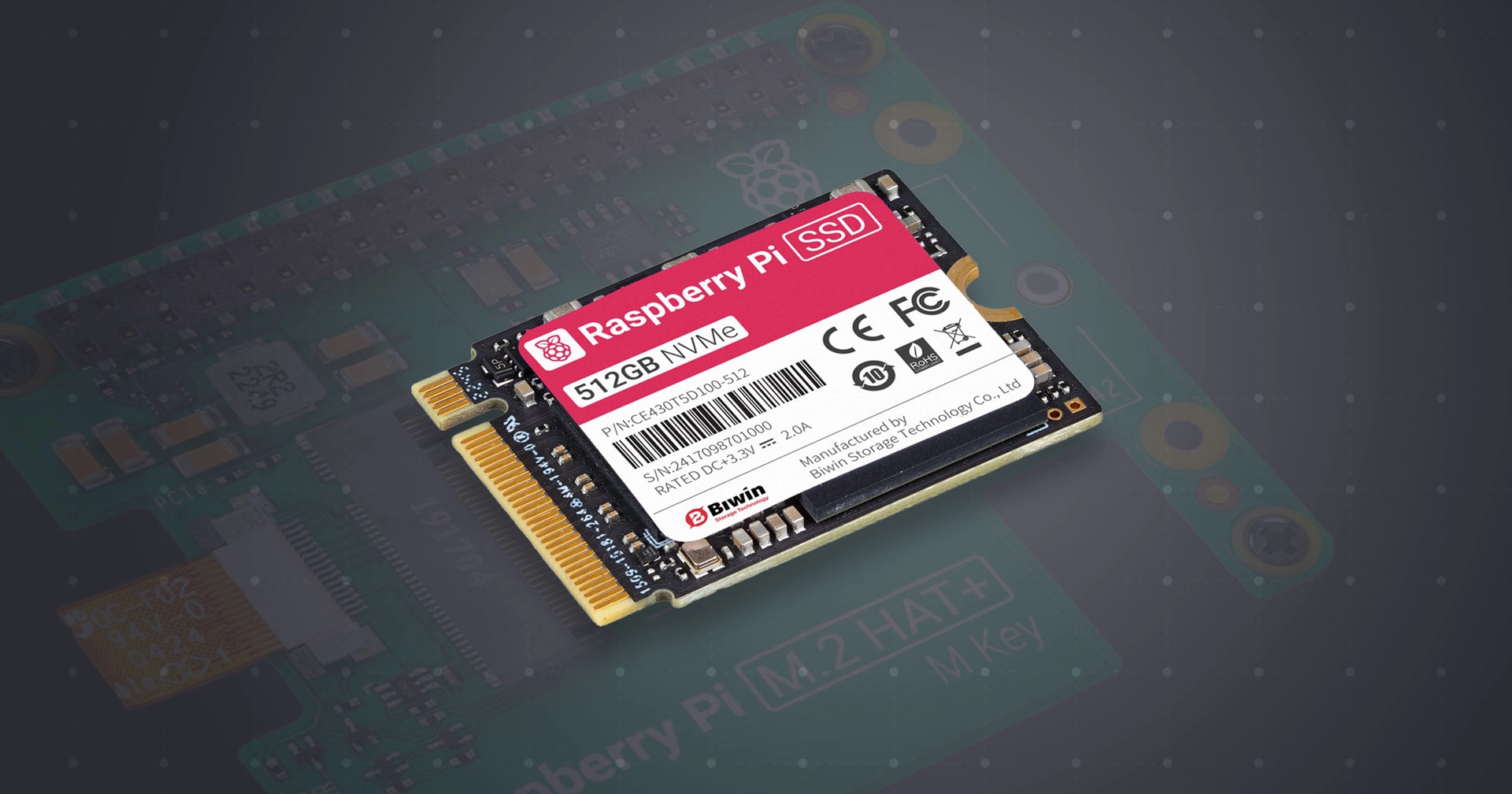One of the standout features of the Raspberry Pi 5, aside from its enhanced performance compared to the previous model, is the ease with which you can incorporate an SSD.
If you’re utilizing a comprehensive desktop operating system such as Ubuntu, opting for an SSD is advisable: boot-up times are incredibly quick, and the input/output performance far surpasses even the highest-quality SD cards (figuratively speaking, of course – let’s not submerge SD cards).
However, selecting the appropriate NVMe SSD can be challenging. There are numerous brands available, with a wide array of options and performance claims, and not all NVMe SSDs are compatible with the various M.2 HAT expansions designed for the Raspberry Pi 5.
The company has recently launched its own selection of Raspberry Pi-branded SD cards (featuring support for command queuing on the Pi 5 along with dependable read and write speeds), and is now introducing a line of branded Raspberry Pi SSDs.
The official Raspberry Pi SSDs are available in two capacities, offering competitive pricing compared to budget SSDs. Additionally, purchasing these drives guarantees compatibility with the official M.2 HAT and most third-party boards, such as the $10 Pineboards HatDrive! Nano:
- 256 GB (40/70 IOPS) – $30/£28
- 512 GB (50/90 IOPS) – $45/£42
So, what if you don’t have an M.2 expansion board?
That’s where the new Raspberry Pi SSD Kit comes into play. This kit includes the official M.2 HAT+ along with an SSD, providing you with a comprehensive, ready-to-use solution.
- 256 GB SSD + M.2 HAT Kit – $40/£37
- 512 GB SSD Kit + M.2 HAT Kit – $55/£51
The PCI Express port on the Raspberry Pi 5 is incredibly versatile—allowing for connections with the official AI HAT, a PoE HAT, and even external PC graphics cards. It’s unfortunate that there’s only one port available.
Nonetheless, having fast, dependable, and spacious storage is a priority for many of us. Thus, utilizing that port to connect a high-speed SSD is a logical choice, if not the most thrilling one.
I’ve been using a bottom-mounted Pimoroni NVMe base paired with a 128GB Patriot P300 SSD on my Pi 5, although I’m not sure how many are interested—perhaps no one is…
If you’re curious to learn more about these drives, the official announcement post has all the details. Alternatively, you can visit your favorite authorized Raspberry Pi retailer to grab a standalone Raspberry Pi SSD or a bundle from the Raspberry Pi SSD kit.
